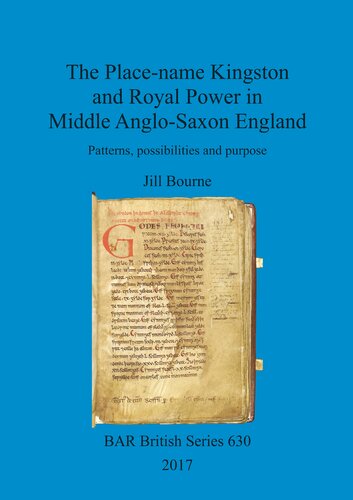

Most ebook files are in PDF format, so you can easily read them using various software such as Foxit Reader or directly on the Google Chrome browser.
Some ebook files are released by publishers in other formats such as .awz, .mobi, .epub, .fb2, etc. You may need to install specific software to read these formats on mobile/PC, such as Calibre.
Please read the tutorial at this link: https://ebookbell.com/faq
We offer FREE conversion to the popular formats you request; however, this may take some time. Therefore, right after payment, please email us, and we will try to provide the service as quickly as possible.
For some exceptional file formats or broken links (if any), please refrain from opening any disputes. Instead, email us first, and we will try to assist within a maximum of 6 hours.
EbookBell Team

5.0
110 reviewsIn this significant study, Jill Bourne presents the corpus of all 70 surviving Kingston place-names, from Devon to Northumberland, and investigates each one within its historical and landscape context, in an attempt to answer the question, What is a Kingston? She addresses all previous published work on this recurrent place-name, both scholarship with an etymological focus and contextual scholarship which examines the names within their wider context. The core of the work is the hypothesis that names of the type cyninges tūn or cyning tūn derive not from independent coinages meaning 'manor/farm/enclosure of a king' in some general sense, or in direct relation to the phrase cyninges tūn, as it is sometimes assumed in the literature, as an equivalent to villa regia. The study explores connections between Kingstons and the cyninges-tūns and villæ regales of the documentary sources; considers the concept and development of early kingship and its possible origins, the laws of the earliest kings, the petty kingdoms, and emergence of the larger kingdoms for which the term Heptarchy was coined (but not used at the time); and pays particular attention to Ancient Wessex, where more than half of the corpus of Kingston names are found, and to the early Anglo-Saxon kingdoms of the Hwicce and Magonsæte, where a further quarter lie.